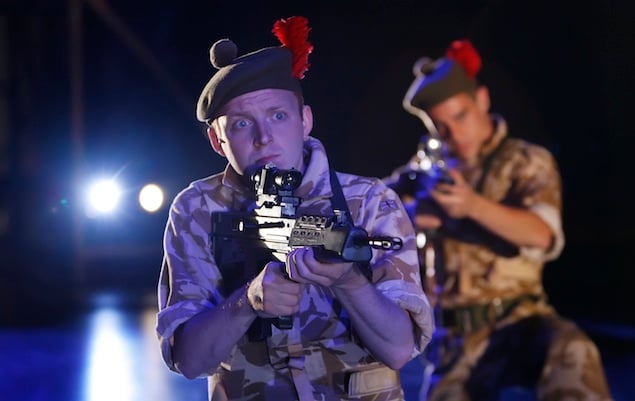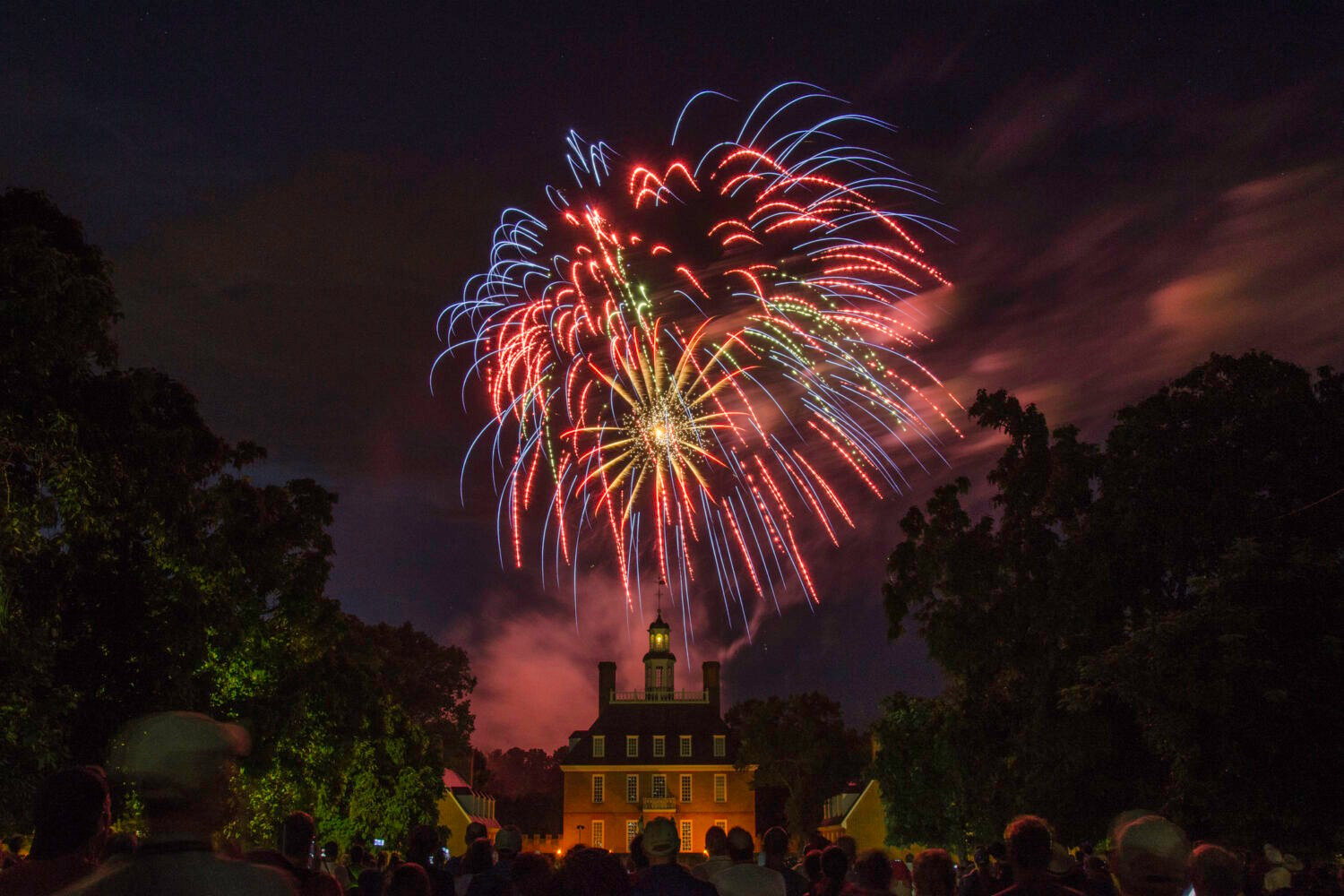
In Charles Chilton’s 1963 musical,
Oh! What a Lovely War, the title song spells out the disconnect between patriotic depictions of conflict
and the inexhaustibly awful reality:
“Up to your waist in water,
Up to your eyes in slush—
Using the kind of language
That makes the Sergeant blush;
Who wouldn’t join the army?
That’s what we all inquire,
Don’t we pity the poor civilians
Sitting beside the fire.”
Fifty years later,
Gregory Burke’s
Black Watch—currently playing at Shakespeare Theatre’s Sidney Harman Hall through October 7 in
a production by the National Theatre of Scotland—is no less searing in its portrayal
of war, although Burke’s characters are more akin to Irvine Welsh than Noel Coward.
Cammy (Ryan Fletcher), the hero of sorts, is perhaps a gentler soul than his foul-mouthed, almost psychopathically
violent fellow soldiers, but he still scatters profanities like confetti and seems
equally shell-shocked by the combination of horror and utter boredom he experienced
while fighting in Iraq.
Black Watch, which returns to Washington after an acclaimed run here last year and universally
positive reviews from its world tour, is that rare combination of theatrical brilliance
and honesty—a portrayal of conflict so powerful it leaves the audience collectively
wincing, even if the closest they’ve been to a battleground is the P Street Whole
Foods the day before Thanksgiving. Crafted by Burke from interviews with members of
the illustrious Scottish regiment known as Black Watch, the production flits between
Fallujah, where Cammy and his friends fight off insurgent attacks, and Scotland, where
they try to forget what they’ve done by drinking copious amounts of alcohol. A writer
(Robert Jack) attempts to interview the soldiers about what it’s like out there, but their efforts
to remember inevitably lead to more harm than good.
Burke and director
John Tiffany compare the torpor of everyday life at home (illustrated through grainy footage of
a soccer match and too-shiny sneakers) with the boredom of being stranded in the desert,
and punctuate scenes with original songs by
Davey Anderson. The initial effect when you first hear the bellicose squaddies singing like choirboys
is unsettling, but the choreography that goes with the songs is breathtaking. During
one scene, Cammy sings about the history of Black Watch and its reputation for excellence
in countries as far away as Egypt and Korea; while he performs, other cast members
dress and undress him in historical military uniforms like a life-size G.I. Joe doll.
There are a thousand subtleties that make the play so heartbreakingly compelling.
Initially, the soldiers change between their everyday clothes and their military kit
to illustrate whether they’re at home or overseas, but toward the end of the play
they remain in uniform—a symbol of their inability to fit back into normal society
after they return. In one scene, when the soldiers get letters from home, they wring
their hands in tiny gestures of sign language, hinting at their inability to communicate
with friends and family members. Half the audience is seated on the stage, so they’re
obliged to turn their heads back and forth between actors like spectators at Wimbledon.
The effect is discomfiting—it’s impossible to predict which way you should be looking
or where the next sign of trouble might come from.
Burke largely steers away from tackling the politics of war, save for a scene in which
former UK Defence Secretary Geoff Hoon debates Scottish National Party Alex Salmond,
blistering in its portrayal of two bumbling, blustering talking heads. Instead, he
leaves the viewer to draw their own conclusions. The effect, after two hours of explosions,
bagpipes, C-words, and raw grief, is as much a microcosm of the experience of war
as anything possibly could be, although horror is tempered by Anderson’s lovely music—Brechtian
in its unforgiving beauty. Brandishing pool cues like AK-47s, Burke’s soldiers are
an unremitting reminder of the true cost of conflict.
Black Watch,
a production by the National Theatre of Scotland, is at Sidney Harman Hall through
October 7. Running time is about 110 minutes, with no intermission. Tickets ($45 to
$65) are available via Shakespeare Theatre’s website.

















